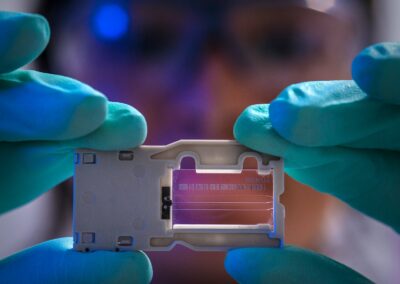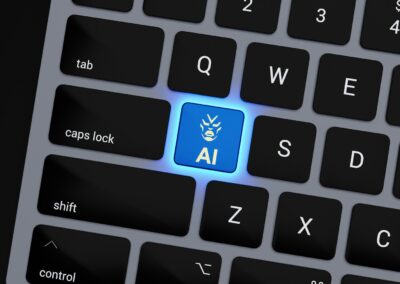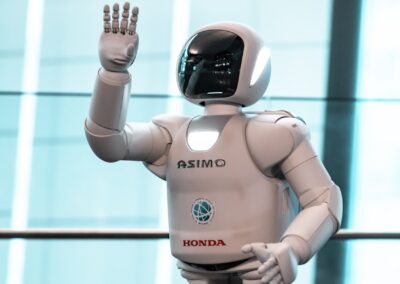Potential Long-Term Effects and the Future Trajectory of Our Species
The Concept of Technological Singularity
The technological singularity and human evolution is a topic of profound significance, captivating futurists, scientists, and business leaders alike. The singularity refers to a hypothetical future point where artificial intelligence (AI) surpasses human intelligence, leading to rapid, unforeseeable advancements in technology. This concept suggests a radical transformation in various aspects of life, with potential long-term effects on human evolution and societal structures.
The singularity promises unprecedented technological breakthroughs, from advanced AI systems capable of self-improvement to the widespread integration of AI in everyday activities. This evolution could lead to significant improvements in various sectors, including healthcare, education, and industry, driving efficiency and innovation. For regions like Saudi Arabia and the UAE, which are keen on adopting cutting-edge technologies, the singularity could propel economic growth and enhance global competitiveness.
However, the singularity also raises ethical and philosophical questions about the future of humanity. The potential for AI to exceed human capabilities presents challenges related to job displacement, data privacy, and the ethical use of technology. As we approach this critical juncture, it is essential to consider both the opportunities and risks associated with the singularity, ensuring that technological advancements benefit society as a whole.
Long-Term Effects on Human Evolution
The technological singularity and human evolution are intrinsically linked, with AI advancements potentially driving significant changes in our species’ trajectory. One of the most profound effects could be the enhancement of human cognitive and physical abilities through AI and biotechnology. Technologies like brain-computer interfaces and genetic engineering could enable humans to augment their intellectual capacities, physical strength, and overall health, leading to a new era of human enhancement.
For example, AI-powered medical diagnostics and personalized treatments could extend human lifespans and improve quality of life. Genetic engineering might allow us to eliminate hereditary diseases, enhance physical attributes, and even boost cognitive functions. These advancements could result in a more capable and resilient human population, better equipped to handle the challenges of the future.
In regions like Riyadh and Dubai, where investments in healthcare innovation are substantial, the integration of such advanced technologies could lead to groundbreaking improvements in public health and longevity. By embracing the potential of the singularity, these regions can position themselves at the forefront of human enhancement, contributing to global advancements in health and well-being.
Shaping the Future Trajectory of Our Species
The technological singularity and human evolution will undoubtedly shape the future trajectory of our species, influencing how we interact with technology, each other, and our environment. One potential outcome is the increased symbiosis between humans and AI, leading to more integrated and efficient societies. As AI systems become more capable, they can assist in decision-making, optimize resource management, and enhance overall productivity.
Moreover, the singularity could drive significant changes in social structures and cultural norms. With AI taking over repetitive and labor-intensive tasks, humans could focus more on creative, strategic, and interpersonal roles. This shift could lead to a more knowledge-based economy, where skills like critical thinking, emotional intelligence, and innovation are highly valued. The education systems in Saudi Arabia and the UAE could adapt to this new reality by emphasizing STEM fields, critical thinking, and creativity, preparing future generations for the AI-driven world.
However, these advancements also necessitate a thoughtful approach to governance and ethics. Ensuring that AI technologies are developed and deployed responsibly is crucial for mitigating potential risks such as bias, privacy violations, and job displacement. Business leaders and policymakers in regions like Saudi Arabia and the UAE must collaborate to create regulatory frameworks that promote ethical AI use and protect human rights.
Strategic Leadership and Ethical Considerations
Navigating the technological singularity and human evolution requires strategic leadership and a commitment to ethical considerations. Business executives and entrepreneurs must lead the way in adopting AI technologies while ensuring that their implementation aligns with societal values and ethical principles. This involves fostering a culture of continuous learning, innovation, and ethical awareness within organizations.
Executive coaching services can play a pivotal role in preparing leaders for the complexities of the singularity. By providing guidance on strategic decision-making, change management, and ethical leadership, executive coaches can help leaders navigate the challenges and opportunities presented by AI advancements. In regions like Riyadh and Dubai, where leadership development is a key focus, investing in executive coaching can ensure that leaders are well-equipped to guide their organizations through the transformative impact of the singularity.
Additionally, collaboration between the private sector, academia, and government is essential for developing comprehensive strategies to manage the implications of the singularity. By working together, these stakeholders can create policies that promote innovation, ensure equitable access to technology, and protect the interests of all members of society.
Conclusion
In conclusion, the technological singularity and human evolution represent a critical juncture in the history of our species. As AI advances towards and potentially surpasses human intelligence, the implications for society, industry, and human development are profound. By embracing the opportunities and addressing the challenges associated with the singularity, regions like Saudi Arabia and the UAE can lead the way in harnessing the power of AI for the betterment of humanity. Through strategic leadership, ethical considerations, and collaborative efforts, we can ensure that the technological singularity drives positive and sustainable transformation in our world.
—
#TechnologicalSingularity #HumanEvolution #AIImpact #FutureTechnology #AIandSociety #SaudiArabia #UAE #Riyadh #Dubai #BusinessTransformation #Leadership #GenerativeAI























